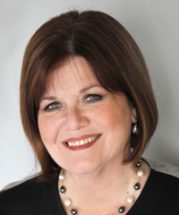Councils have applauded local government minister Shelley Hancock for trying to resolve outstanding issues arising from the 2016 council mergers, including the thorny issue of harmonising rates across old boundaries.

Introducing amendments to the Local Government Act into parliament on June 4, Ms Hancock said councils would have more time to consult with communities over changes to rates arising from the harmonisation process.
The bill also removes some limits on local government procurement and allows more opportunities for councils to share regulatory services and staff across borders.
“Minister Hancock has not only listened but delivered, bringing about simple resolutions to issues that impact on councils and their communities,” LGNSW President Linda Scott said in a statement.
“That augurs well for not only the local government sector, but also for the communities our councils represent.”
A thorn in the side of amalgamated councils
The issue of rates has long been a thorn in the side of amalgamated councils, who were required to come up with a new formula across previously existing boundaries, replacing often disparate rates systems that existed under the previous structure.
The proposed changes extend the existing deadline, set to expire at the end of the month, to June 30 2021 if needed.
“We need to give councils the option for more time to have challenging conversations with their communities about the rates harmonisation process, including why some rates will need to rise, so that they can work through those issues with their communities,” Ms Hancock told parliament.
Cr Scott said harmonising rates was a complicated process which would inevitably result in rate changes for some property owners.
“Councils are committed to making this process as fair as possible, and while some are on track to meet the old deadline, others need to work with a significantly greater number of affected landowners,” she said.
Councils welcome extension
One of the affected councils, Edward River Council in the NSW Riverina Region, said the extension would give council more time to work with the community and consult with affected landowners.
“Harmonising rates across the former Conargo Shire and Deniliquin Council boundaries will be a complicated process that will inevitably result in rate changes for some property owners,” general manger Adam McSwain said.
He said council had already developed a comprehensive plan and was on track to meet the existing deadline. But the extension now gave it the option of delaying implementation.
“We intend on engaging a consultant to assist us in progressing the harmonisation process,” he said.
Professor Graham Sansom, who led the Independent Local Government Review Panel’s (ILGRP) inquiry into NSW local government reform in 2013 that led to the amalgamations, said council mergers in Queensland in 2007-8 had shown that rate harmonisation could be a complex and tricky task.
However, he said both the difficulty of rate harmonisation and sensitivity about it on the part of state and local government was probably “overstated”.
But he added the extension was a sensible decision and should give councils adequate time to get the job done.
Reducing red tape and making procurement easier

The amendments will also reduce red tape by raising the threshold around council tendering arrangements to $250,000, meaning councils will no longer be required to go to a competitive tender process for contracts under that amount.
“Procurement costs are now much higher than when the threshold was legislated and the current threshold causes unnecessary cost and delay to many council projects,” Ms Hancock said.
She said the changes would increase council purchasing powers, reduce red tape and also make it easier for councils to support business that employ people with a disability.
The legislation also extends cut-off dates by which councils need to decide whether to outsource admin of the 2020 local elections to the electoral commission.
“it means councils will be able to digest the results of the Independent Pricing and Regulatory Tribunal’s review into the costs of local government elections, currently under way,” Cr Scott said.
Comment below to have your say on this story.
If you have a news story or tip-off, get in touch at editorial@governmentnews.com.au.
Sign up to the Government News newsletter.





Leave a Reply